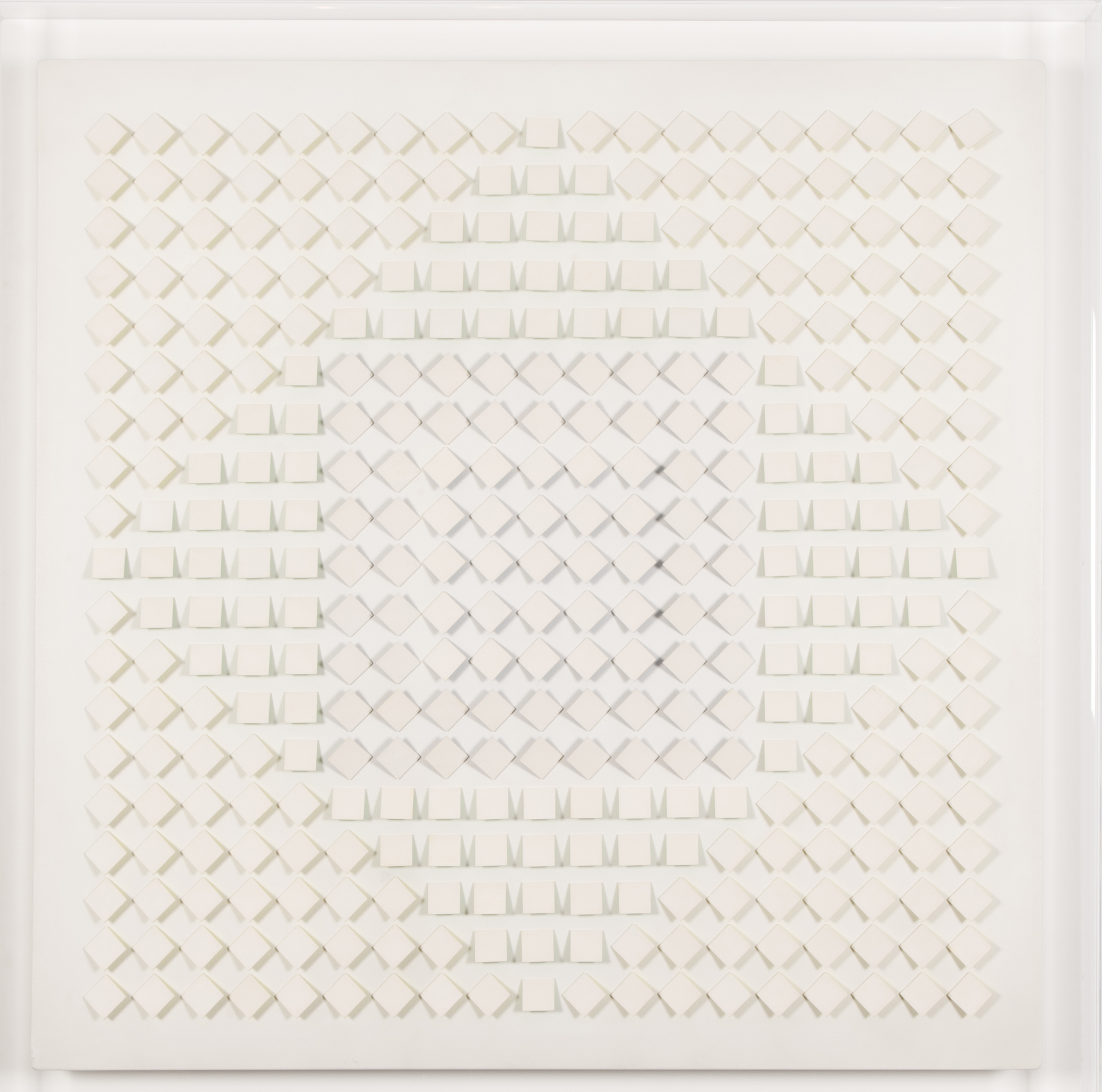Luis Tomasello attended the Escuela Nacional de Bellas Artes Prilidiano Pueyrredón (1932-1938) and the Escuela Superior de Bellas Artes de la Nación Ernesto de la Cárcova (1940-1944), both in Buenos Aires. His earliest painting were figurative based on Cézanne’s style, but by the end of the 1940s his work had become geometric. In 1951, he made his first trip to Europe and became interested in avant-garde geometric abstraction. Upon returning to Buenos Aires, he co-founded the Asociación Arte Nuevo (1955).
In 1957, Tomasello settled in Paris, where he made his first two-dimensional kinetic works. based on repetitions of white, black, and gray squares. From these works he moved on to the creation of reliefs in 1960, when he replaced the squares with cubes that adhered to the surface, allowing him to construct a series of orthogonal structures. The sides of the cubes were painted in pastel or fluorescent colors that, according to the illumination and the angle in which the piece was observed, produced a generally white surface, a reflection the artist called “color-sensation.” When this reflection was combined with the repetition of the cubical forms, a virtual movement took place, thanks to the rhythmical combinations of lights and shades. Tomasello titled these compositions Atmosphères chromoplastiques, and soon after he expanded his modular elements to other polyhedral and cylindrical forms. In Paris he became involved with the circle of kinetic artists and joined the movement Nouvelle Tendance. During the 1960s, he exhibited at the Galerie Denise René and participated in the most important group optical and kinetic art exhibitions of the period.
Tomasello began, in 1971, to integrate his work into architecture with the construction of the monumental Mural cromoplástico for the building San Pedro de Guadalajara (Mexico), followed by the Mural lumino-acústico for the Palais des Congrès (Porte Maillot, Paris, France, 1973), Atmosphère chromoplastique for the Fantin-Latour College (Grenoble, France, 1974), Mural cromoplástico in Val-de-Reuil (France, 1979), and Chromoplastic Mural for the Nelson-Atkins Museum of Art (Kansas City, Missouri, United States, 2011). Natural light, ideal for Tomasello’s work to work to its fullest extent, produced an wide range of kinetic effects.
During the 1970s, Tomasello developed the series Object plastique, which was similar to Atmosphères chromoplastique but with a greater emphasis on the use of the color. At the start of the following decade, he created a new series of Atmosphères chromoplastiques, in which cracks on a black surface, in the absence of light, gave rise to an absolute black. In the same decade, he produced Elogios del tres (1980) and Negro el 10 (1984), two book-objects that included poems by Julio Cortzar accompanied by linographs and serigraphs. Tomasello continued his investigation into the reflection of light through his series Atmospèhres chromoplastiques and Objets plastiques.
